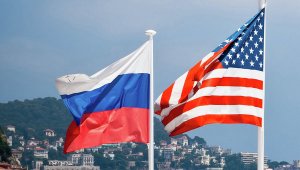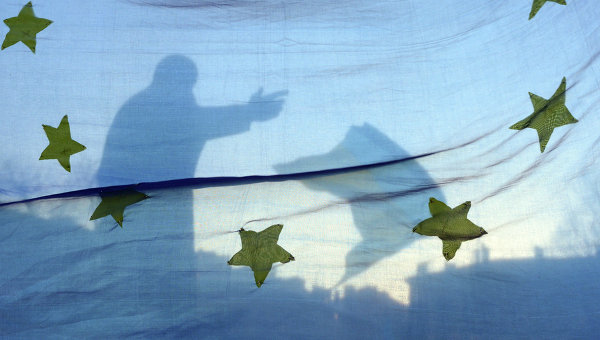
Edward Lozansky
Edward Lozansky is president of the American University in Moscow, Professor of World Politics at Moscow Sate University
There is hardly any serious political observer who wouldn’t agree that a couple of month ago Putin saved America from yet another disastrous military adventure in the Middle East. He did so by throwing Obama a life preserver in the form of the diplomatic proposal to destroy chemical weapons in Syria instead of launching U.S. Tomahawk missiles to bomb a sovereign nation, with which America is not at war.
And now this week Putin has saved Europe from the huge economic, financial, and perhaps even political nightmares which could have resulted had the European Union signed its proposed association agreement with Ukraine.
According to preliminary estimates Ukraine would need at least 160 billion Euros and most likely a lot more to adapt its economy to European standards. Neither Ukraine nor Europe could afford this huge undertaking. The last we heard the EU was pledging to cough up 600 million Euros – a drop in the bucket. Could it be that they expected Russia to foot the bill?
This may not sound so laughable if one recalls that in the not so distant past when Orange Ukraine was not paying its gas bills to Russia and, moreover, was illegally diverting Russian gas flows to Europe for its own use the West blamed Russia for "bullying” its neighbor.
Following the Vilnius EU summit failure the Western political elite and media pundits have had a field day, explaining the unexpected turn of events by conjuring up nefarious machinations originating in the Kremlin. "Ukrainian government suddenly bows deeply to the Kremlin,” Carl Bildt, the Swedish foreign minister tweeted. "Politics of brutal pressure evidently works.” And the Western-backed opposition in Kiev is howling in fury due to the loss of the mostly imaginary benefits from European association.
In fact, if Putin were half as manipulative as the West imagines him to be, Russia should have been glad to let Ukraine go ahead and sign this dubious agreement. Within a year or two, there would have been riots across Ukraine as its people realized the disastrous consequences it would have entailed for their economy and society in general. Instead, Putin has saved the EU from its own folly and over-reaching.
Considering that 60 percent of its exports go to the counties of the Custom Union, namely Russia, Kazakhstan and Belarus, Ukraine obviously has a clear economic interest in promoting its trade relations with this bloc, not merely solely with the EU.
Therefore, one would think that a way to resolve the current crisis would be a trilateral EU-Russia-Ukraine commission to find the solutions satisfactory to all sides. If Brussels is willing to understand that both Kiev and Moscow have legitimate economic interests at stake, then such a trilateral approach may bear fruit.
However, this idea was dismissed out of hand by EU leadership and alone among European leaders only German Chancellor Angela Merkel seems to be willing to explore it further.
Poor Merkel. As soon as she dared to indicate this Wall Street Journal (WSJ) editors immediately issued a strong rebuke to her and not only for endorsing EU-Russia talks but for "blocking a proposal to offer Georgia a path to NATO membership” which would "make it harder for Mr. Putin to rebuild a revanchist Russian empire.” This kind of overwrought expressions sounds like the lines typical for WSJ contributing editor Garry Kasparov.
Make no mistake, for all of the rhetoric about "democracy promotion” and fostering former Soviet republics economic development for Brussels the real objectives were entirely based on self-interests and further weakening Russia by backing it into geopolitical corner.
Subordinating Ukraine to its economic dictates would have been a boon both to European exporters as well as new territory for EU bureaucrats to master since Ukraine could be used as a backdoor for European goods to penetrate the Russian market without paying custom fees.
The geopolitical implications here are also all too obvious. Former U.S. National Security Advisor Zbigniew Brzezinski was pretty explicit when he said that "Russia with Ukraine is always an empire, but Russia without Ukraine is always a weak country." Former Secretary of State Hillary Clinton was no less blunt by stating that the West would not allow Russia to form its Eurasian Union.











